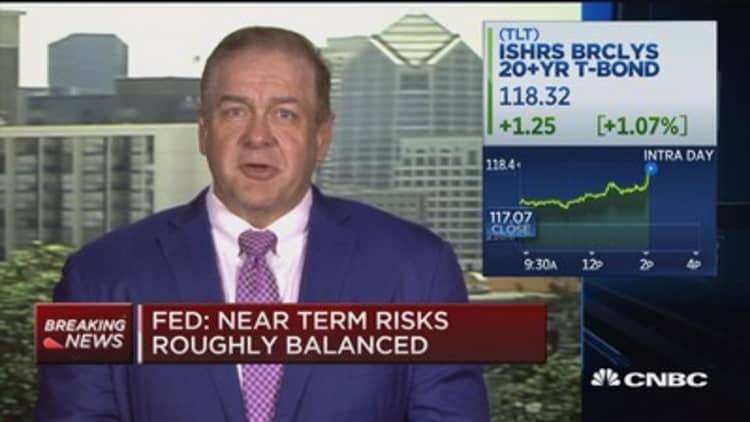
Despite Wednesday's Federal Reserve rate hike, interest rates still don't match the U.S.' economic performance, and that means there could be danger ahead, expert David Kelly told CNBC.
"If you look at these long term forecasts … we've hit all of them. We're there right now on growth. We're there right now on inflation. We're there right now on unemployment, but the Fed is about two years or more away from its long-term target on the federal funds rate," the global chief strategist with JPMorgan Asset Management said in an interview with "Power Lunch" on Wednesday.
"The idea is it's supposed to take away the punch bowl when the party's in full swing. Right now this is a party unsupervised. ... So there still is a danger of overheating here."
On Wednesday, the Fed increased its benchmark interest rate by a quarter point, indicating market confidence and a robust economy.
It also indicated it still expects three moves this year.
However, Kelly thinks the "dovish" Fed should move faster, raising rates at "every noncrisis meeting they have this year."
Scott Minerd, global chief investment officer at Guggenheim Partners, believes the Fed left the door open so that it can pick up the pace of tightening if needed.
"That gives the market the confidence … that they're not going to let inflation run out of control and that they are going to try to stay on course. If they see unexpected rises in inflation or continued declines in unemployment, that they'll continue to gradually upgrade their expectations, which will lead to a faster rate of increases," he told "Power Lunch."
In a press conference on Wednesday, Chair Janet Yellen defended the gradual rate rises, saying the rate hikes are directly related to "confidence in the economy's trajectory, a sense that the economy will make progress."
"I think the right way to look at it is in qualitative and not quantitative terms," she said.


